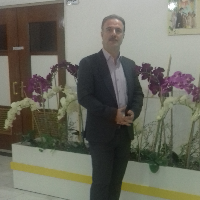The effect of family social capital on women's drug use in Tehran (1398)
Social capital is a tool to achieve other types of capital, including economic, human and cultural capital. One of the most important areas affected by social capital is the institution of the family. The aim of this study was to investigate the effect of family social capital on women's tendency to drugs in Tehran.
This research is a cross-sectional survey. The statistical population of the study consisted of women aged 17 to 25 years in Tehran and a sample of 350 of them (100 addicts and 250 non-addicts) were interviewed by simple random sampling. Data were collected using a valid and reliable questionnaire (Cronbach's alpha between 0.69 and 0.84 for research variables) and analyzed using correlation, regression and t-tests in SPSS software.
The study showed that there is a significant relationship between family social capital and its dimensions with drug addiction. Among the dimensions of social capital, cognitive social capital within the family is the strongest predictor of drug-addicted behavior among women. Therefore, by developing the social capital of the family, it is possible to help reduce women's addiction
-
The Role of Police Commanders in Attracting the Participation of Other Organizations in Crime Prevention (Case study of Urmia)
Ali Taymori, Fariba Shayegan *,
Police Management Studies Quarterly, -
Pathology of unauthorized shooting in Varamin city
*, Mahdi Shirmohammadi, Mohsen Zand
Intelligence and criminal research journal, -
Investigating the Impact of Knowledge Management on Proponents of Alien Organization
Alireza Najafi *, , Jahanghir Sademire
Intelligence and criminal research journal, -
The Role of Police Social Capital in Interacting with Citizens to Establish Discipline and Security (Case Study of Greater Tehran)
Jafar Rajabloo *, Hananeh Doroshti, Ali Mohammad Fatemi Yegane
Journal of Capital Police Knowledge,


